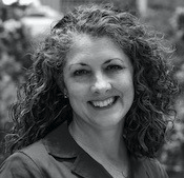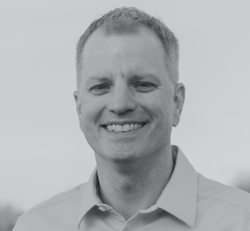
Cheryl Boyd
Global Vice President, Digital Strategies

How do you work interdependently with other strategies and capacities to help national ministries fulfill the Great Commission with national staff numbers ranging from 1 to more than 7,000? Each region has unique challenges, and each nation has its cultural context. You can use BANI (Brittle, Anxious, Nonlinear, Incomprehensible) or VUCA (Volatile, Uncertain, Complex, Ambiguous) to describe our environments. Whichever adjectives you choose, it is easy to get overwhelmed!
Here on earth you will have many trials and sorrows. But take heart, because I have overcome the world. (John 16:33)
Jesus spoke these words of encouragement to His disciples. We need them as much today as they did when they sat around the Passover table with Him for the last time. I know many of you are experiencing enormous challenges. Some realities you face with teammates, and others are more personal and unique. How do we persevere through the challenges and trust God to use us to fulfill his Great Commission in these uncertain times? Let’s look at how Jesus taught His disciples to live and lead by faith in the midst of need and insufficient resources for the complex realities around them.
That evening, the disciples came to him and said, “This is a remote place, and it’s already getting late. Send the crowds away so they can go to the villages and buy food for themselves.”
But Jesus said, “That isn’t necessary—you feed them.”
“But we have only five loaves of bread and two fish!” they answered.
“Bring them here,” he said.
Then He told the people to sit down on the grass. Jesus took the five loaves and two fish, looked up toward heaven, and blessed them. Then, breaking the loaves into pieces, He gave the bread to the disciples, who distributed it to the people. They all ate as much as they wanted, and afterward, the disciples picked up twelve baskets of leftovers. About 5,000 men were fed that day, in addition to all the women and children! (Matthew 14:15-21)
Jesus invited the disciples to see the need and feel the weight of it, but He didn’t expect them to solve the problem on their own. They offered the little they had (which God also provided) to Jesus. He didn’t laugh at them or ridicule them. He took it and multiplied it. He met the need and gave them the joy of participating with him in meeting that need.
It is also noteworthy that Jesus was carrying personal grief at the time. He had just gotten news that His cousin, John the Baptist, had been killed. From this miraculous moment of feeding thousands, we read that the disciples experienced a frightening storm. All of this happened as they also experienced the oppression of Rome. Jesus and the disciples knew a lot about leading in complexity!
What is God saying to you about your leadership challenges? I am encouraged by the reminder that Jesus is inviting me into His mission. He isn’t expecting me to solve problems and meet needs on my own. He also does not ask me to ignore them. That would not be good leadership. Instead, with each day’s worries, I am bringing the needs to Him along with my fish and loaves, which are the teammates, insights, talents, resources, and connections He has provided. I offer them up to Him and watch, expectantly, to see what miracles He will do!
He sees you.
He knows your needs.
He is faithful in fulfilling every promise.
He will never leave you.
Together with you,
Cheryl

Eric Coe
Chief of Staff, Global Digital Strategies

Whatever God has entrusted you to lead, it likely involves navigating complexity.
I have found this to be true in nearly all the ministry roles God has called me to in my time on staff. Initially, it was the challenge of serving on a cross-cultural team and learning how to contextualize the gospel for a different audience and culture than the one I had grown up in. Later, there were the complexities of leading as part of a national leadership team and learning to see my piece of the mission in the context of a larger whole. And what could be more complex than adopting new technologies in a changing world to communicate the timeless message of the gospel to audiences whose needs and preferences are shifting moment by moment?
Using digital approaches to radically accelerate the fulfillment of the Great Commission requires us to lead in complexity and to balance different tensions that sometimes feel opposed to one another. We lead in environments where there are no simple answers, where there are multiple variables, and where we are sometimes trying to parse the difference between good, better, and best.
As God has called me to step out in faith and lead in complexity, the following questions have helped me clarify how I can best contribute and lead amid complexity.
1. What is my vision and mission?
This question seems simple, yet it is often easy for me to overlook. Leading in complexity often requires making strategic decisions. When faced with multiple options and complex issues, a clear understanding of my mission can make those choices clearer.
For instance, the purpose of Global Digital Strategies is to radically accelerate the fulfillment of the Great Commission across all audiences, meeting them where they are using digital approaches, principles, and tools. Understanding the unique ways that DS contributes to the mission can help point me toward the best ways that I can contribute to a specific challenge—or, by contrast, where others may make the best contribution.
2. What are my priorities?
In the same way, it is always helpful to have a clear understanding and expression of my ministry priorities. Our GDS VP Team has been growing in this over the past year. A priority is an expression of what is most important to you and your team. By clearly expressing what our team is trusting God for, it is easier for me to see the opportunities and levers at my disposal—and makes it possible for me to make the difficult choices that leading in complexity requires.
3. What are the needs and priorities of those I am working with?
The most complex problems are often those whose solutions require collaboration with others. Working in interdependence requires that I understand and value not just my own goals and priorities but also the goals and priorities of those with whom God has called me to serve.
The great news is that we aren’t called into complexity by ourselves. God has called us into a body where there are different gifts and perspectives. Leading in complexity requires recognizing that solutions can come from anywhere and that yesterday’s solutions may not be sufficient for today’s problems. By God’s grace, we can enter that complexity together and trust God to work through our shared vision and goals to lead us to new and effective approaches.

Melody
SESA Digital Strategies Leader
“We don’t have a national DS leader because everyone wants that position, and now no one dares to take it because they fear backlash from the team.”
“Our country is taking up the cities strategy, and digital is not the current focus.”
“Sorry for not collaborating, but our strategy will not do anything digital. We don’t need that.”
The above quotes are from real conversations.
I lead in a region with more than 8,000 major languages and even more cultures and subcultures from each people group. My situation is even more complex because I am relatively young (the youngest in the roundtable) and a female leader in a mainly male-centric culture.
The previous structure split our current region into two areas. Joining two areas brings a lot of cross-cultural and relational complexity. In my approach to leadership, I tend to build deeper relationships and trust as I lead, which can make the decision-making process feel slow to some. Even though we are making progress, all of these issues can make some issues appear more complex than when we first started.
To be honest, I struggled a lot when I first led and often doubted if I was qualified for this position. There were many occasions when I was caught off guard by what happened in the ministry and couldn’t provide good suggestions or solutions to the leaders who sought advice. Sometimes, I feel helpless and disappointed with myself.
What I find helpful in leading in a complex environment is to proactively connect with the leaders, keep the communications open, listen well, and be willing to understand every spoken and unspoken message they try to convey. I have also learned that leadership is not trying to make everyone happy. Instead, I try to point them towards God, ministry fruitfulness, and being more strategic in the work they’re doing.
With the help of the LDHR Crucial Conversations course and the team's support, I became more assured in having crucial conversations in complex situations. As I lead, having people pray together with me for wisdom and discernment in understanding the people and the situation has become a non-negotiable. It is okay not to know all the answers to every situation. I just need to keep trusting God and the leaders that I am leading because He is sovereign over every complex environment.


©1994-2022 Cru. All Rights Reserved.